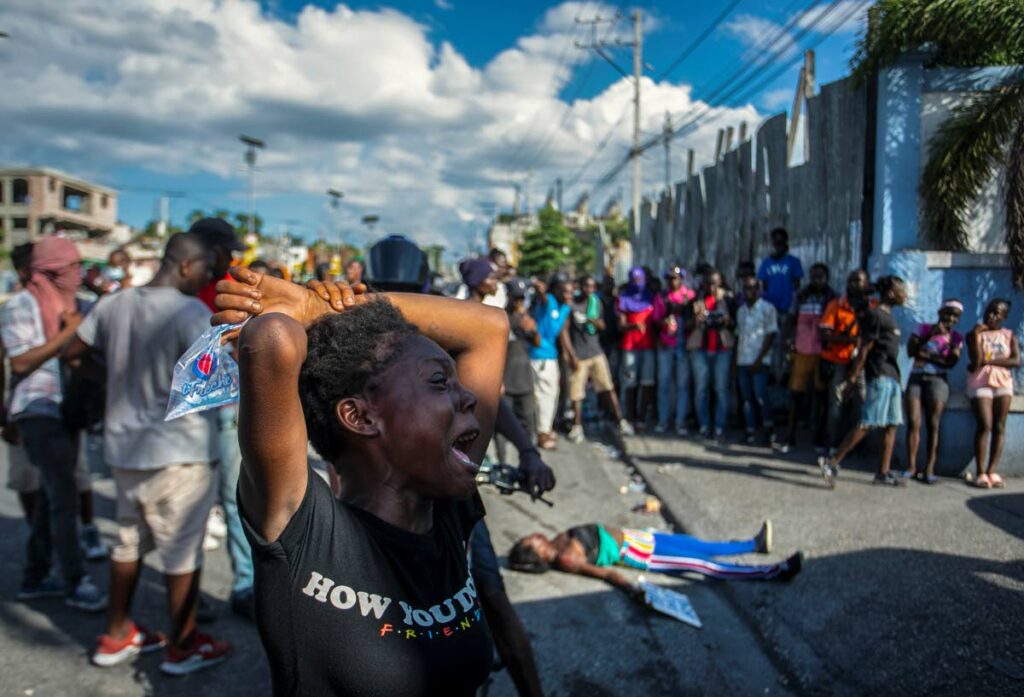Food and Agriculture Organisation official: keep an eye on Haiti

Head of the Food and Agriculture Organisation TT (FAOTT) Reuben Robertson said Trinidad and Tobago should keep an eye on the emerging food and social crisis in Haiti and use it as an example of how conflict and improper food productions systems could affect food availability on a country.
“Haiti is right in our back yards and it is a good example of some of the things that we should not do, to avoid falling into the same trap,” Robertson said.
The political, economic, security and health crises in Haiti has left vulnerable Haitians in a cycle of desperation without access to food, fuel, markets, jobs and public services, grinding the nation to a standstill, the FAO said in a joint release with the UN’s World Food programme.
“According to the latest IPC analysis a record 4.7 million people are currently facing acute hunger (IPC 3 and above), including 1.8 million people in emergency phase (IPC 4) and, for the first time ever in Haiti, 19,000 people are in catastrophe phase (IPC 5),” the release said.
It added that Cité Soleil has seen a worrisome rise in food insecurity over the past three years with 65 per cent of the population in high levels of food insecurity.
“The issue that FAO has there is being able to mobilise into the communities that are vulnerable because access to these communities is really hindered by the current uprising,”
The FAO/WFP release said that despite the security situation in Port-au-Prince and Cite Soleil where gangs have taken over the streets, cutting off vulnerable citizens from work, markets or food aid, the WFP was able to provide more than 100,000 people with emergency assistance this year.
“WFP’s focus remains on strengthening national social protection and food systems that are central to the country’s recovery efforts and long-term development,” the release said.
Robertson said TT, the rest of the region and the world on the whole was faced with similar circumstances because of the Russian/Ukrainian war, as the conflict was one of the causes of an increase in food prices and a decrease in food availability for most countries. However, the last FAO food price index indicates some level of return to pre-war food prices.
“Last month the index showed that edible oils was had the biggest reduction in prices. Then we had the meat from bovines, sugar and some of the other commodities. Cereals were the only ones that showed some increase but with Brazil and Argentina increasing production we see some of the cereals have remained stable.”
Robertson was speaking to reporters at the FAO World Food Day’s prize-giving ceremony for its arts and essay competition at its head office on Serpentine Road, St Clair on Friday where five children were given various awards including hydroponic systems, and free tours at a bird sanctuary.
Robertson in his keynote address said the FAO is focusing on the youth to achieve the sustainable development goals and maximise its efforts to realise the four betters – better production, better nutrition, better environment and better life.
“Older people are more resistant to change,” he said. “But young people like challenges and when we introduce the technology and we make the environment available to the youth to be able to invest we expect that they will grab the opportunity.”
“We are depending on the young people and the women to change this whole system of agricultural transformation.”


Comments
"Food and Agriculture Organisation official: keep an eye on Haiti"